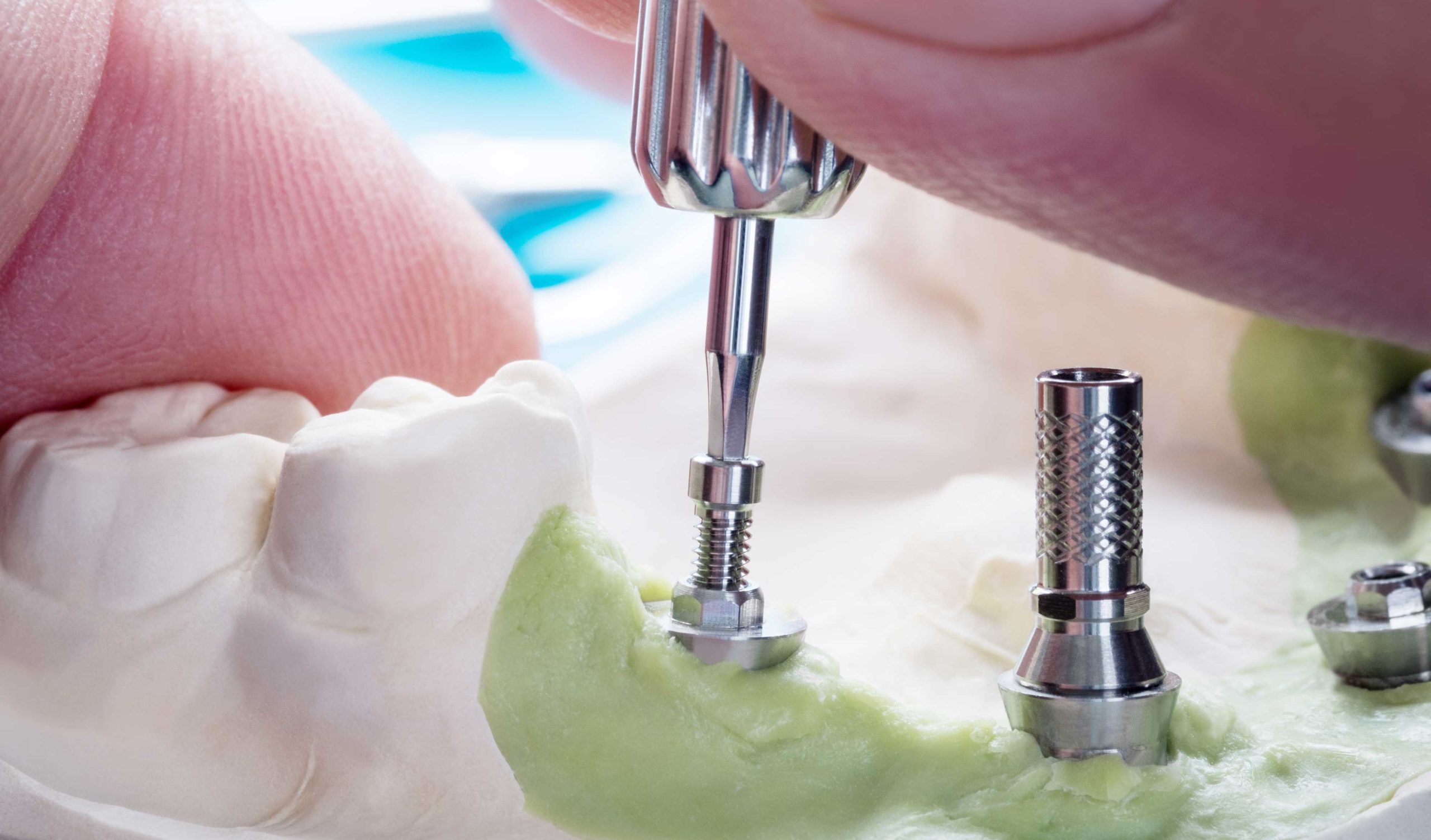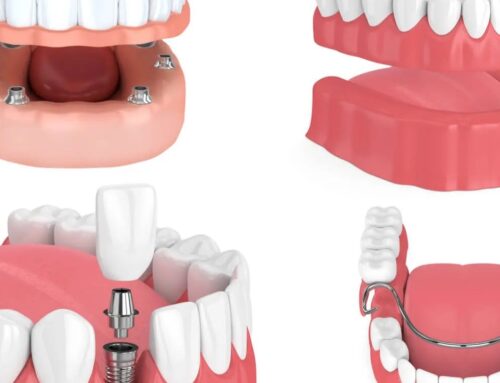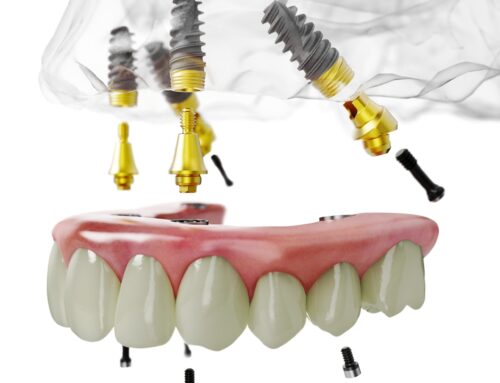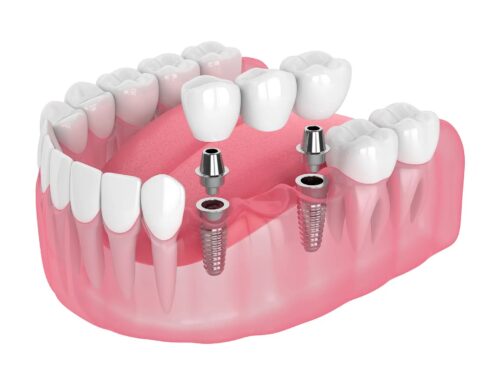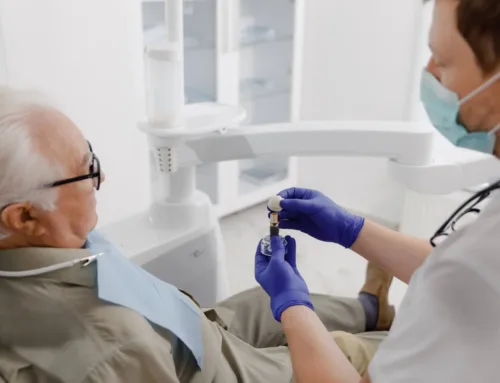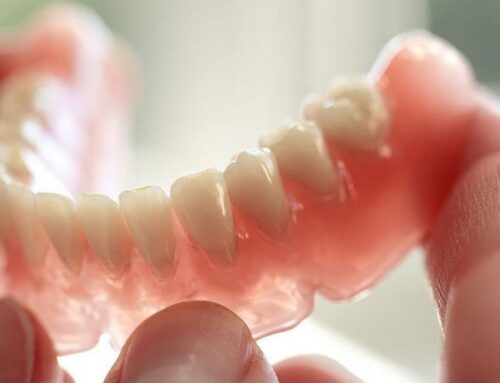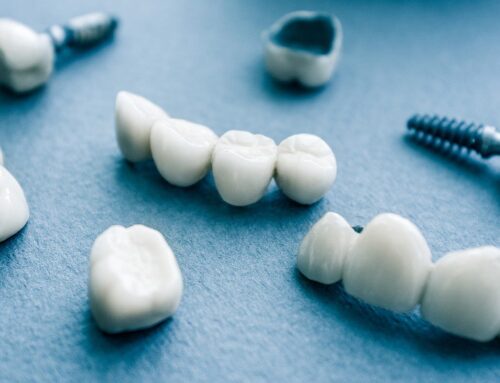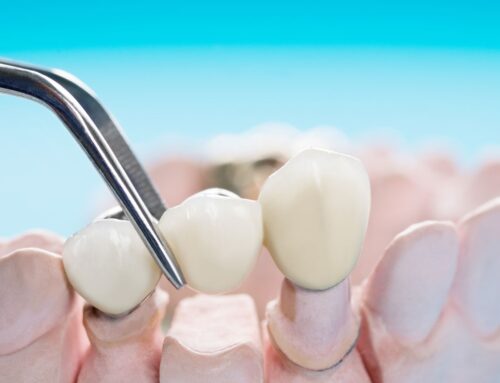Dental Implant Options & How They Work to Replace Missing Teeth
Dental implants are an important part of dentistry, and these treatments are essential for many patients to maintain and restore the quality of their dental health and overall well-being. There are many types of treatment methods available to address the problem of missing teeth, each with their own unique set of advantages. Find out more about dental implant procedures, and how they work to restore dental health.
A healthy smile is a big contributor to our state of health and well-being. Without strong teeth and healthy gums, it’s more difficult to maintain a healthy diet, our self-confidence can decrease, and other health problems can develop if proper oral care habits are not practiced. Fortunately, keeping your mouth clean and your teeth strong is fairly straightforward. Brush and floss regularly, keep to a sensible schedule of dental checkups, and take care of problems early. This is especially true in the event that a tooth, or perhaps several teeth, become loose or fall out. Lost or missing teeth are a serious issue that must be dealt with promptly.
These days, the problem of lost teeth can be solved with a variety of approaches. Single replacement teeth, multiple replacement teeth, and even an entire set of brand new artificial teeth can be provided based on the best combination of health benefits and long-term effectiveness, and in particular factoring in the manageable costs for the patient. This is an important aspect to take note of, as there is often a misconception that dental implants are a very expensive treatment. Unfortunately this misconception can lead some people who are in desperate need of treatment to delay or not take action in getting the care they require to maintain their health. However, the reality of the costs of these types of treatments is quite different.
Managing The Costs Of Dental Implant Treatments
Typical cost for dental implant treatments covers a very wide range. Depending on the scope of work needed to address the dental problems of the patient, costs can start as low as just $1000 for a single dental implant. At the other end of the spectrum, a full mouth restoration with complete top-and-bottom implant-mounted full-arches can range from $20K up to $60K. With that in mind, the truth is that there is no ‘standard’ cost for dental implants, as every treatment for every patient needs to be tailored to their specific case and needs. The only way to really find out what dental implant treatment would cost to address the specific dental health case of a particular patient is to schedule an appointment and start the evaluation process. There are so many interconnected factors to consider, it’s simply impossible to provide an accurate cost estimate with just a phone call or email reply.
Once they’ve been evaluated, then the patient will be presented with the best options to treat your specific situation. Depending on the urgency of the care required, and the budget of the patient, there may be several different ways to proceed. There may also be a less-intensive procedure that can be performed at a lower cost to address some of the major issues immediately, improving at least some aspects of the patient’s situation. This would essentially be a stepping stone to get the patient started down the treatment path, and help to set the stage for a more comprehensive and permanent solution.
In addition, in the event that costs end up being the deciding factor, Georgian Dental offers affordable financing options to patients so they can obtain the critical care they need while making the entire process easier to handle financially. Again, just like how the price of the treatment cannot be defined without an evaluation, a detailed financial discussion will be conducted to identify the best way for patients to proceed with the care they need in the most manageable way from month to month.
Now, let’s talk briefly about some of the most common situations that result in lost or missing teeth.
What Are The Causes Lost Or Missing Teeth?
A person might experience a lost tooth or several missing teeth for a wide variety of reasons. The most obvious reason most people would think of right away for lost teeth would be an accidental impact to the teeth or jaw. This could occur in many situations, such as a fall that results in contact to the mouth or face area, or due to a high-impact collision during some types of physically-aggressive sports. While trauma to the jaw and mouth are a very common reason, these are not the only situations that cause lost teeth.
There are also many instances where serious dental problems or other health conditions can manifest in ways that include loose or lost teeth. For example, advanced stages of tooth decay that occur as a result of improper oral care and neglected dental health can definitely cause loose and lost teeth, or necessitate a tooth extraction. Other conditions, such as oral cancer and gum disease, can also cause teeth to become loose in the jaw to the point where they can fall out if not treated. In fact, gum disease, also known as periodontal disease, is the number one reason why teeth are lost.
Whatever the specific reason is for a loose or lost tooth, it is absolutely critical that treatment is begun as quickly as possible to prevent any worsening of the condition and begin the process of healing the patient’s mouth.
Why Is It So Important To Replace Lost Teeth Quickly?
The urgency of treating lost teeth comes from a combination of factors. First, a lost tooth can have a significant impact on the function of the patients’ mouth, including the ability to eat and drink. Proper nutrition is essential to maintaining a healthy body, and this includes the health of teeth and gums. Lost teeth can also have detrimental effects on speech patterns, such as slurring or mispronunciations of certain words, resulting from the change in sensations missing teeth cause between the tongue and lips during speaking.
Self-confidence can also be dramatically affected by lost teeth, making people far more apprehensive to smile or reducing their desire to engage in social situations. As you’d expect, the longer this persists for people, the more compounded the effects can be. Low self-confidence can, over time, have a noticeable impact on a person’s overall feelings of happiness and well-being, possibly leading to other physical or mental health effects if not properly managed.
In addition to negative impacts to mouth function and overall wellness, lost teeth also accelerate the issue of bone density loss in the jaw. This occurs because natural teeth exert frequent pressures on the jawbone, stimulating the area and encouraging the bone and surrounding tissues to strengthen. Once teeth are missing from the jaw, this pressure becomes reduced, which in turn reduces the simulation that maintains bone density. Over time, the jawbone can become less dense and weaken, increasing the likelihood of potential breakage or fractures. Loss of bone density can also result in symptoms of soreness or pain in the surrounding area, gradually becoming more severe as the condition progresses.
As you can see, the negative effects of lost teeth are significant, and the long-term risks are too important to be ignored. Lost teeth should be replaced as soon as possible, as this is the only way to effectively stave off these effects and restore the patient’s state of dental health. To do this, dentists will select from a range of different dental implant solutions depending on the number of teeth that have been lost, and the current condition of the patient’s jawbone and overall state of health.
Dental Implants For Single Missing Teeth
Dental implants are the best way to replace an individual missing tooth. Dental bridges are also a viable method for treating missing teeth, but they do not have the same advantages offered by an implant. Bridges are artificial teeth that are affixed using a strong dental adhesive to the two adjacent teeth, effectively creating a ‘bridge’ across the gap. Visually, bridges are virtually indistinguishable from natural teeth. However, bridges do not solve the issue of bone density loss due to the fact that they are not physically connected into the jaw bone where the lost tooth once sat.
Dental implants utilize a specially-designed anchor post that is embedded directly into the bone material where the lost tooth was. These posts are made of an advanced composite material that has unique properties, allowing it to fuse and bond with the bone itself, producing a firm and solid base that is nearly identical to a natural tooth root. Atop the anchor post, a precision-sculpted artificial tooth crown is attached, made to perfectly match the shape and colour of the adjacent natural teeth. The result is a great-looking smile, and a permanent, stable replacement tooth that functions in exactly the same way as a natural tooth.
The fusion of the bone to the implant anchor post allows the replacement tooth to produce the same type of stimulation and pressure as the rest of the natural teeth in the mouth, restoring the body’s bone strengthening process and encouraging greater bone density in the affected area of the jaw.
Dental Implants For Multiple Missing Teeth
For multiple missing teeth, the approach is not all that dissimilar to that of a single dental implant. In cases where the missing teeth are in separate arches or on opposite sides of the arch, each one is simply an individual dental implant and each one can often be implanted all in the same procedure. For patients who have more than one tooth in a row in need of replacement, a different type of solution is used known as an implant-supported bridge.
In this procedure, the areas on either end of the gap are prepared to receive a single dental implant. With this method, there will not be a dental implant added in the middle of the gap. This is because the process of implanting multiple anchor posts directly side by side in the jaw would not leave sufficient bone material in between each of the implants to allow for proper healing, or produce the required structural integrity to result in the optimal outcome for the patient. In cases like these, implant-supported dental bridges are an ideal solution. Once the two implants are securely in place, the artificial tooth bridge is affixed to them, and the treatment is complete.
Complete Mouth Restoration Using All-on-4 Dental Implants
For patients with advanced stages of tooth loss due to severe decay, those suffering from a loss of many teeth due to a major accident, or in serious cases of periodontitis where tooth loss is unavoidable, a complete mouth restoration is likely to be recommended. Traditionally, this would have been done using full-arch gum-supported dentures to replace all the teeth on the top and bottom jaws. However, through the use of modern dental implant technology, superior methods of mouth reconstruction are available that help to mitigate the issues of bone density loss that are caused by loss of teeth, as well as to provide a more secure and stable fit for greater comfort while eating and speaking.
This implant procedure, known as the ‘All-on-4’ technique, utilizes a series of strategically-placed dental implants on the top and bottom jaws. The procedure is named after the innovative method of using 4 individual dental implants on the top, and 4 on the bottom, to which a complete full-arch dental prosthesis is securely mounted, hence, ‘All-on’4’. Each implant is placed at a very specific position and angle within the jawbone, which are determined based on a thorough examination of the bone structure to provide optimum strength, stability, and the most cohesive fusion between the dental implant material and the bone.
With All-on-4 dental implants, patients regain complete mouth function along with a beautiful set of natural-looking teeth that will also help to restore self-confidence, all leading to an improved state of overall health and well-being. Patients who have undergone the All-on-4 procedure are eager to speak of their life-changing experience, with many saying that the results exceeded all their expectations. In fact, you can hear patients talk about their All-on-4 experience in their own words in this collection of All-on-4 dental implant testimonials. To say that their stories are inspiring is an understatement! We are proud to have helped each and every one of our All-on-4 patients to reclaim the quality of life they deserve through revolutionary tooth replacement treatments.
Let Us Help Restore Your Mouth With Innovative Dental Implant Procedures
If you or someone you love has experienced lost teeth or requires treatment to regain mouth function for any reason, the team here at Georgian Dental is standing by to assist you. Our dental implant experts will arrange an appointment to start the evaluation process for you right away, and get you the information you need to make the best choice in treatments. Contact us today to arrange for your preliminary appointment, and get started down the path to improved dental health and a better quality of life.
Appointment Request
If you’re interested in any of our procedures, and would like to meet with one of our dentists to discuss options, costs and get additional information, complete this short form and we’ll give you a call to arrange for a no-obligation appointment at our Barrie clinic.
